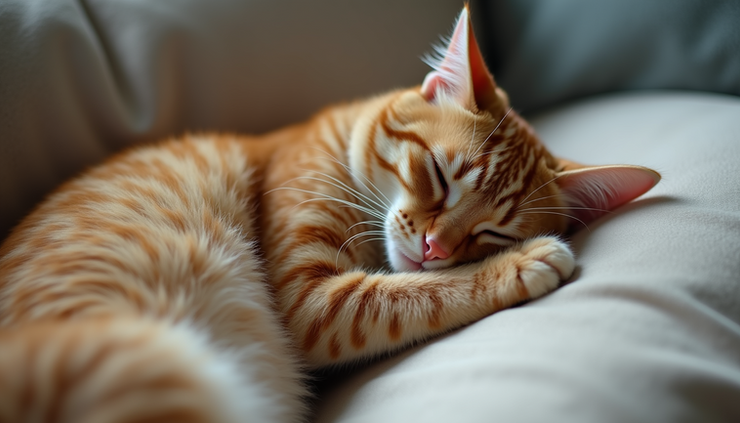Understanding Why Your Cat Doesn't Purr and What It Means
- Nov 13, 2025
- 4 min read
Cats are known for their soothing purrs, a sound many owners associate with happiness and comfort. But what happens when your cat doesn’t purr? This can leave many cat owners puzzled and concerned. Why doesn’t my cat purr? Is it a sign of illness, stress, or something else? This post explores the reasons behind cats not purring, what it means for your feline friend, and when you should be worried.

Why Do All Cats Purr?
Before diving into why some cats don’t purr, it’s helpful to understand why cats purr in the first place. Most domestic cats purr as a form of communication and self-soothing. Purring often signals contentment, but cats also purr when they are nervous, in pain, or even healing. This sound is produced by the rapid movement of muscles within the larynx (voice box) and diaphragm.
Not all cats purr equally, though. Some breeds are known for their loud, constant purring, while others are quieter or rarely purr at all. This raises the question: do all cats purr? The answer is no. Some wild cats and certain domestic breeds may rarely or never purr.
Reasons Why Cats May Not Purr
If you find yourself asking, why does my cat not purr? or why do cats not purr, there are several possible explanations:
1. Breed Differences
Certain cat breeds are less likely to purr. For example, some wild cats like cheetahs and cougars do not purr in the same way domestic cats do. Among domestic cats, breeds like the Siamese or Bengal may purr less frequently or more quietly.
2. Age and Development
Kittens usually start purring when they are a few days old. If you wonder, why doesn’t my kitten purr, it might be because they are too young or still developing the ability. Some kittens may also be shy or stressed, which can delay purring.
3. Health Issues
Cats not purring can sometimes indicate health problems. Pain, respiratory issues, or injuries can make it difficult or uncomfortable for a cat to purr. If your cat suddenly stops purring or never purrs and shows other signs of illness, a vet visit is important.
4. Emotional State
Cats purr for many reasons beyond happiness. They may stop purring if they feel scared, anxious, or stressed. Changes in environment, loud noises, or new pets can affect their comfort level and reduce purring.
5. Personality and Temperament
Just like people, cats have unique personalities. Some cats are naturally quiet and reserved. They may show affection and contentment in ways other than purring, such as kneading, rubbing, or simply sitting close to you.
Should I Be Worried If My Cat Doesn’t Purr?
Many cat owners ask, should I be worried if my cat doesn’t purr? The answer depends on the context.
If your cat has never purred but is otherwise healthy, eating well, and active, there is usually no cause for concern.
If your cat used to purr but suddenly stops, especially if accompanied by other symptoms like lethargy, loss of appetite, or breathing difficulties, you should consult a veterinarian.
If your kitten doesn’t purr, observe their behavior and growth. If they seem healthy and social, it may just be a personality trait or developmental stage.
Pay attention to your cat’s overall behavior and health rather than focusing solely on purring. Cats communicate in many ways, and purring is just one of them.

Why Do Cats Stop Purring?
Sometimes cats that usually purr suddenly stop. This can happen for several reasons:
Pain or discomfort: Cats may stop purring if they are in pain or feeling unwell.
Stress or fear: New environments, loud noises, or unfamiliar people can cause cats to stop purring.
Aging: Older cats may purr less frequently or more quietly.
Medical conditions: Respiratory infections, throat problems, or neurological issues can affect purring.
If your cat stops purring and shows other signs of distress, it’s important to seek veterinary advice.
How to Encourage Your Cat to Purr
If you want to encourage your cat to purr, try these tips:
Create a calm environment: Cats purr when they feel safe and relaxed. Provide a quiet, comfortable space.
Gentle petting: Many cats purr when stroked softly, especially around the head, chin, and back.
Spend quality time: Play and cuddle with your cat to build trust and comfort.
Watch for signs: Notice when your cat starts to purr and what triggers it. This can help you understand their preferences.
Remember, some cats simply purr less, and that’s okay.
Other Ways Cats Show Contentment
If your cat doesn’t purr, they may still show happiness in other ways:
Slow blinking at you
Kneading with their paws
Following you around
Sitting or sleeping close to you
Playful behavior
Understanding these signs can help you connect with your cat even if they don’t purr.

Final Thoughts on Cats Not Purring
Not all cats purr, and not all cats purr all the time. If you find yourself wondering, why do cats not purr or why do cats stop purring, consider their breed, health, and emotional state. Most cats that don’t purr are perfectly healthy and happy in their own way.
If your cat suddenly stops purring or shows other signs of illness, a vet checkup is the best next step. Otherwise, enjoy the unique ways your cat communicates and bonds with you. Purring is just one part of the rich language cats use to express themselves.




Comments